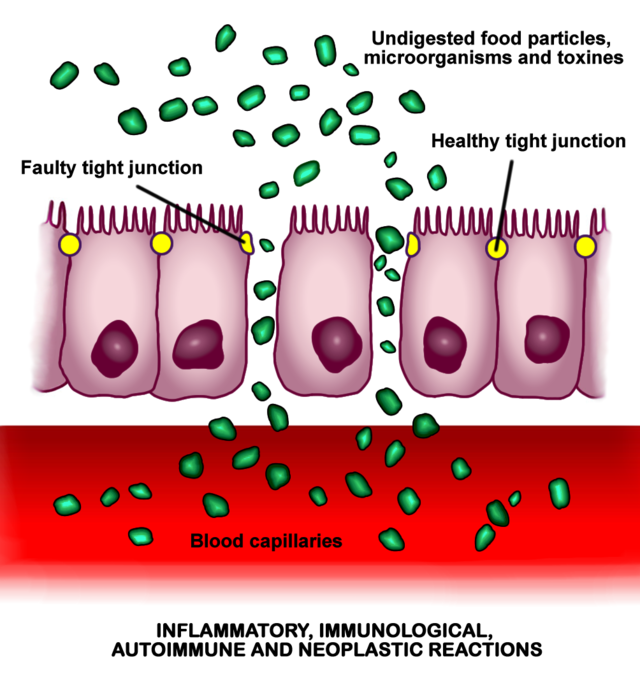LEEKY GUMS! HOW MOUTH BACTERIA CONTRIBUTES TO WHOLE BODY DISEASES LIKE ALZHEIMER’S.
There are more than 774 kind of microbes that live in your mouth, the only place that has more is your gut! The mouth has unique habitats for different kinds of bacteria, like teeth, tongue, gingival sulcus, palate, saliva, inner cheek, and throat
Oral bacteria is the primary source of bacteria that live in other body organs such as the lungs and the brain.
The leaky gut and the problems it causes:
When microbes in the gut (intestines) breach the mucosal (inner lining) barrier and interact with the body’s immune system, this is know as a “leaky gut” syndrome.
In the same way, when bacteria build up on your teeth and inside gum pockets, they have an opportunity to infiltrate the into the body through the gums, this is know as the “leaky gum” syndrome, which is an increase the permeability of the gum.
The average person eats about 60 tons of food in a lifetime, these 60 tons go through the mouth and into the intestines that are about 10 meters long and have 400 square meters of surface area.
Gut bacteria perform important digestive functions, such as break down fibre. Stress, smoking, alcohol, preservatives, over exposure to antibiotics and eating too much processed food can lead to “dysbiosis” which is an imbalance between the gut bacteria and its host ( you).
This dysbiois can affect diseases like IBD ( inflammatory bowel disease), constipation, indigestion, and obesity, and is related to severity of diseases such as hypertension, diabetes, cancer and heart disease.
Unlike the skin which has many layers of cells and is covered with keratin to form an impressive physical barrier to bacteria, the inner lining of the mouth and gut, called mucosa, has only one single cell layer and no keratin for protection. This make is easer for microbes to penetrate into the body through the gut than through the outside skin.
To protect against invasion, the mouth and gut is covered with mucus and is lined with lymph (immune tissue) to deal with bacterial invasion.
The leaky gum and the problems it causes.:
Gum pockets around the teeth of healthy adults can reach about 3mm deep. Below that there is a biologic seal between the gum and the teeth called the junctional epithelium. This seal can break down in conditions of inflammation and infection which allows for bacterial infiltration.
The gum pockets are good space for bacterial biofilm accumulation. Biofilm that builds up on skin, inner cheek and gut are washed out during normal hygiene, digestion, and when the skin exfoliates (dies off and falls away). Biofilm that builds on the teeth refers falls off because your teeth ( as opposed to skin) are there pretty much for life. So that is an ideal place for bacterial colonies to form over a lifetime.
This biofilm causes inflammation that wears away the bone surrounding the teeth and results in a deepening of the gum pockets around the teeth, which makes it difficult to remove the biofilm in the deep part of the pocket.
The effect of the biofilm that builds on the teeth on the rest of the body was examined recently in nursing home patients in Japan (Yoneyama 2002). They found that older patients that received oral care had lower cases of pneumonia and fever and improved everyday life activities.
Even when bacteria is found in organs far away from the mouth such as the placenta, it seems they originate in mouth bacteria. Bacterial species that are implicated in gum disease have been isolated in pancreatic cancer, colorectal cancer, liver disease, arthritis, diabetes and heart disease. Oral bacterial can activate an immune response to sites of infection. This immune response can worsen many whole body disease such as cardiovascular disease and diabetes by increasing the production of messenger molecules that prolonged inflammation.
Gum disease bacteria have been isolated in cancer lesions and seem to favour tumour progression. These same oral bacterial species can penetrate the blood-brain barrier and increase the production of plaques and inflammation in the brain and accelerate the progression of Alzheimer’s disease.
In summary, mouth bacteria have been found in many other body organs and may contribute to many whole body diseases.
For more information please refer to:
Leaky Gum: The Revisited Origin of Systemic Diseases. Do-Young Park et al.
Cells 2022, 11(7), 1079.


